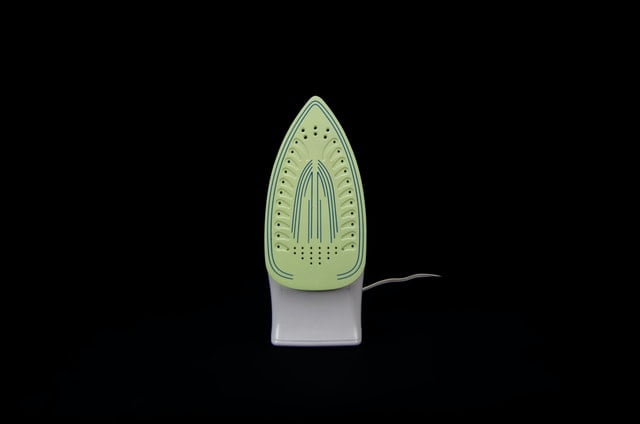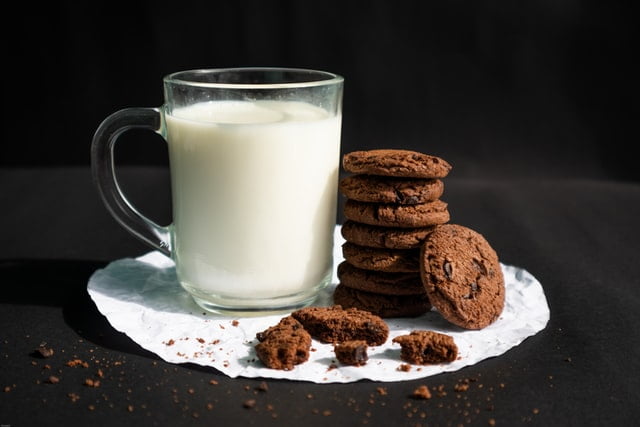
Eating glue might seem peculiar and concerning, but it is not uncommon for curious individuals, particularly children, to be tempted to taste or consume non-food items. Glue is a commonly used adhesive substance in various forms, such as liquid, gel, or solid sticks. While the glue is intended for bonding materials and not for consumption, some people may still be tempted to ingest it out of curiosity, dare, or even due to pica, a disorder characterized by a persistent craving and consumption of non-nutritive substances.
In this article, we will explore the potential risks and consequences of eating glue for children and adults. Understanding the possible health implications of such behavior is important to promote awareness and prevent accidental or deliberate glue ingestion.
Understanding the Basics of Glue and Its Composition
Glue is an adhesive substance that joins or bonds two or more surfaces. It is composed of various chemicals, depending on the type of glue. The most common type of glue is polyvinyl acetate (PVA) glue, also known as white glue. PVA glue is made from a combination of polyvinyl acetate and water. It is non-toxic and commonly used in arts and crafts projects.
Different Types of Glue Available in the Market
Apart from PVA glue, many other types of glue are available in the market. Some examples include super glue, hot glue, wood glue, and paper glue. Each type of glue has its specific properties and is designed for different purposes. Choosing the right glue type for the intended application is important to ensure optimal results.
Is Glue Safe for Consumption?
Glue is not safe for consumption. Glue is not designed to be ingested and can cause serious health issues if consumed. It is important to keep glue out of children’s reach and educate them about the dangers of eating glue. Consuming even small amounts of glue can result in stomach upset, abdominal pain, and in some cases, even blockage in the digestive system.
What Happens If You Eat Glue?

When ingested glue, it can pose several risks and dangers to the body. Glue is not meant to be consumed; its chemicals can be harmful when ingested. The effects of eating glue can vary depending on the type of glue and the amount ingested. Here’s what may happen if you eat glue:
1. Mild discomfort: Ingesting a small amount of non-toxic glue might lead to mild discomfort, such as an upset stomach, nausea, or vomiting. These symptoms are usually short-lived and not life-threatening.
2. Toxic glue: Some glues, especially those not intended for human consumption, contain toxic chemicals. Swallowing toxic glue can cause more severe symptoms, such as abdominal pain, dizziness, and difficulty breathing, and in extreme cases, it may result in poisoning.
3. Choking hazard: Glue, especially in its liquid form, can be sticky and thick, posing a choking hazard if swallowed without being properly diluted or ingested inadvertently.
4. Gastrointestinal blockage: Ingesting large amounts of glue or swallowing a solid piece of glue can lead to a gastrointestinal blockage, requiring immediate medical attention and possibly surgical intervention.
5. Allergic reactions: Some individuals may be allergic to certain glue components, such as latex or other chemicals. Eating glue in such cases can trigger an allergic reaction, ranging from mild skin irritation to severe anaphylaxis, a life-threatening condition.
It’s important to note that glues are not meant to be ingested, and doing so is unsafe under any circumstances. If you or someone else accidentally ingests glue, it is essential to seek immediate medical attention.
Call your local poison control center or the nearest emergency room for proper medical advice and treatment. It’s always better to prevent such accidents by keeping glues and other potentially harmful substances out of reach, especially for young children.
How Does the Body React to Glue Ingestion?
When glue is ingested, it can irritate the digestive system. The body may try to eliminate the foreign substance by inducing vomiting. In some cases, the glue may pass through the digestive system without causing immediate harm. However, consuming large amounts of glue can have long-term health implications and should be treated as a medical emergency.
Can You Eat Glue Sticks?
The Difference Between Regular Glue and Glue Sticks
Glue sticks are a type of glue that is commonly used in schools and offices. They are solid sticks of adhesive that are housed in a twistable container. The main difference between regular glue and glue sticks is the consistency and application method. While regular glue is liquid, glue sticks are solid and can be applied directly onto surfaces.
Why Do Kids Often Eat Glue Sticks?
Children are curious about nature and may be tempted to eat glue sticks due to their colorful appearance and sweet scent. However, educating children about the potential dangers of eating glue sticks is important. Ingesting glue sticks can lead to similar health issues as consuming other types of glue.
Are There Any Edible Glues?
Exploring Edible Glue Options
While most glues are not edible and can be harmful when ingested, certain types of edible glue are available for specific culinary purposes. Edible glue is specially formulated for food decoration and can be consumed safely. It is commonly used in baking and cake decorating to attach edible decorations to desserts.
Are There Any Safe Glues for Consumption?
Safe glues are available for consumption but are specifically designed for food-related applications. Edible glues are made from food-grade ingredients and are safe to eat. However, it is important to use these glues only for their intended purpose and not to consume regular glue or other non-edible adhesives.
Using Edible Glue for Culinary Purposes
Edible glue can be used in a variety of culinary applications. It is commonly used to attach fondant decorations to cakes, secure edible pearls on cookies, or stick together gingerbread pieces for a festive house. It provides a safe and effective way to create visually appealing and edible designs.
What to Do If You Ingest Glue?
Step-By-Step Guide for Dealing With Glue Ingestion
If you accidentally ingest glue, it is essential to take immediate action to address the situation. Follow this step-by-step guide for dealing with glue ingestion:
1. Stay Calm: Stay calm and try not to panic. It is essential to think clearly and act quickly.
2. Spit Out Glue: If you have glue in your mouth, do not swallow it. Spit it out immediately.
3. Rinse Mouth: Rinse your mouth thoroughly with water to help remove any remaining glue residue. Gargle with water to ensure the glue is not stuck in your throat.
4. Do Not Induce Vomiting: Avoid inducing vomiting unless advised to do so by a medical professional or poison control center. Vomiting may cause additional complications if the glue gets into the airway.
5. Do Not Drink Water or Other Liquids: Refrain from drinking water or other liquids immediately after ingesting the glue. Drinking liquids may cause the glue to expand and solidify, leading to potential blockages.
6. Contact Poison Control or Seek Medical Help: Call your local poison control center or seek immediate medical attention. Inform the medical personnel about the type of glue ingested, the quantity, if known, and any symptoms you may be experiencing. Poison control can be reached at 1-800-222-1222 in the United States and is available 24/7.
7. Follow Medical Advice: Follow medical professionals’ instructions and advice. They will assess the situation and provide appropriate treatment based on the specific glue product and the severity of the ingestion.
8. Keep Glue Container or Packaging: If possible, keep the glue container or packaging with you to provide vital information to medical personnel about the product’s ingredients and safety warnings.
Remember, immediate medical attention is essential in the case of glue ingestion. Do not delay seeking help, even if you believe the amount ingested was small. The severity of the situation can vary based on the type of glue, its ingredients, and an individual’s health condition. Prompt action and proper medical care can help minimize potential risks and ensure your well-being.
When to Seek Medical Assistance After Consuming Glue

Accidental glue ingestion, even in small quantities, warrants prompt medical attention. Some glues may contain toxic chemicals that can be harmful if ingested, making it essential to seek medical help to mitigate potential risks. Additionally, if you experience any adverse symptoms such as nausea, vomiting, difficulty breathing, or throat irritation after consuming glue, do not hesitate to seek medical assistance. This is especially critical for children, who may be more vulnerable to the effects of ingesting harmful substances.
Even in cases where the type of glue or the quantity consumed is uncertain, seeking medical help is the safest course of action. Remember, when it comes to your health, it is better to act swiftly and seek professional medical advice to ensure your well-being and address any potential complications.
If you are in doubt or encounter any allergic reactions, such as a rash, hives, swelling, or difficulty breathing after glue ingestion, seek emergency medical attention immediately. Contact your local poison control center or emergency room for prompt evaluation and appropriate treatment.
8 Preventative Measures to Avoid Glue Ingestion
1. Safety Measures to Avoid Accidental Glue Ingestion
Preventing glue ingestion is key to ensuring your safety and the safety of those around you. It is important to store glue securely, out of the reach of children and pets. Make sure to read and follow the instructions provided on the packaging. If using glue in a household setting or with children, choose non-toxic glues labeled as safe.
2. Teaching Children About the Dangers of Eating Glue
Educating children about the hazards of consuming glue is essential. Teach them that glue is not food and should never be eaten. Explain the potential health risks and reinforce the importance of seeking help from an adult if they come into contact with glue or accidentally ingest it.
3. Selecting Non-toxic Glues for Household Use
When purchasing glue for household use, opt for non-toxic glues whenever possible. Non-toxic glues are formulated to be safer if accidentally ingested or inhaled. Look for explicitly labeled non-toxic glues to minimize the risks associated with glue exposure.
4. Keeping Glue Caps Secure
After using glue, always ensure that the cap is securely closed to prevent accidental spills or ingestion. Loose caps may entice children or pets to explore the glue, leading to potential ingestion hazards. Additionally, storing glue containers upside down can help reduce the likelihood of the glue drying out and creating a seal that might be challenging to open securely.
5. Supervising Glue Use with Children
When children are using glue for arts and crafts projects, it is crucial to supervise them closely to avoid accidental ingestion. Ensure that the glue is used in a controlled environment, and teach children to apply glue only to the intended surfaces, avoiding contact with their hands and other objects that could be put in their mouths.
6. Seeking Medical Attention if Ingestion Occurs
In the event of accidental glue ingestion, it is essential to seek immediate medical attention. Call your local poison control center or visit the nearest emergency room for guidance and treatment. Do not induce vomiting or provide any remedies without professional advice, as this could exacerbate the situation.
7. Checking for Allergic Reactions
Before using any new glue product, perform a patch test on a small skin area to check for potential allergic reactions. Some individuals may have sensitivities to certain glue ingredients, and it is crucial to identify these reactions before exposing the skin or mucous membranes to the adhesive.
8. Proper Disposal of Glue and Packaging
Dispose of empty glue containers and packaging properly, following the guidelines in your local waste disposal regulations. If the glue has expired or dried out, dispose of it in a manner that minimizes environmental impact and keeps it out of reach of children and animals.
Following these safety measures and educating those around you can help prevent accidental glue ingestion and ensure that glue is used safely in your household and workspace. Prioritizing the safety and responsible use of adhesive products is essential to promote a hazard-free environment.
Frequently Asked Questions
Q: What happens if you eat glue?
A: Eating glue can have negative health effects. While some glues are considered non-toxic, they are still not meant to be ingested. If you accidentally ingest a small amount of glue, it may pass through your system without causing harm. However, ingesting large amounts of glue or consuming certain types can lead to serious health problems.
Q: Is glue edible or not?
A: Glue is not meant to be eaten. While some glues are labeled as “edible,” consuming them as food is still not recommended. Even if the glue is labeled as non-toxic, it is not safe to ingest.
Q: Do kids eat glue?
A: Some children may be curious and attempt to eat glue. This behavior is commonly observed in young children and can be attributed to their exploration phase. However, it is important to discourage this behavior and ensure that glues are kept out of reach of children.
Q: Can glue cause health problems if swallowed?
A: Yes, swallowing glue can cause health problems. Depending on the type of glue and the quantity ingested, it can lead to symptoms such as nausea, vomiting, abdominal pain, and even blockages in the digestive system. If you or someone you know has swallowed glue, it is advisable to seek medical help or contact poison control.
Q: Are all glues safe to eat?
A: No, not all glues are safe to eat. While some glues are labeled non-toxic, they are still not meant for consumption. Certain glues, such as super or industrial-strength glue, can be especially harmful if ingested.
Q: What are the dangers of eating glue?
A: Eating glue can lead to various dangers. Ingesting glue can cause chemical reactions in the body, potential blockages in the digestive system, and other complications depending on the type and quantity ingested. Keeping glues away from the mouth and avoiding consuming them is important.
Q: Is it true that some people eat glue on purpose?
A: Some individuals with certain eating disorders or pica may compulsively eat non-food items, including glue. However, this behavior is unsafe and can lead to serious health problems. If you or someone you know struggles with this, it is important to seek professional help.
Q: Does glue taste like anything?
A: Different glues may have different tastes, but glues generally do not taste pleasant. Some people describe the taste as bitter or unpleasant. However, it is important to remember that even if glue tastes unpleasant, it should not be consumed.
Q: Can you die from eating glue?
A: While it is unlikely to die from eating a small amount of glue, ingesting large quantities or consuming certain types of glue can lead to serious health problems that could be life-threatening if left untreated. It is always important to seek medical help if you or someone you know has ingested glue.
Q: Is glue used in food products?
A: Glue is not meant to be used in food products. Food-grade glues are specifically designed for use in the food industry and are regulated by health and safety guidelines. These glues are different from those used for crafts or household purposes.
Conclusion
In conclusion, consuming glue can lead to potential health risks and adverse effects. Glue is not intended for ingestion and may contain toxic substances that can harm the body. Even in small amounts, accidental glue ingestion should be taken seriously, and immediate medical attention should be sought. It is essential to prioritize safety by keeping glue out of the reach of children and pets, selecting non-toxic glues for household use, and educating individuals, especially children, about the dangers of eating glue.
By following preventive measures and seeking medical assistance when needed, we can avoid the hazards associated with glue ingestion and ensure the well-being of ourselves and those around us. Remember, glue is meant for its intended purpose, and proper use can help us avoid unwanted complications or health issues. Stay safe and make responsible choices to safeguard your health and loved ones.
For more valuable content like this, join our community at the Family Hint today!



